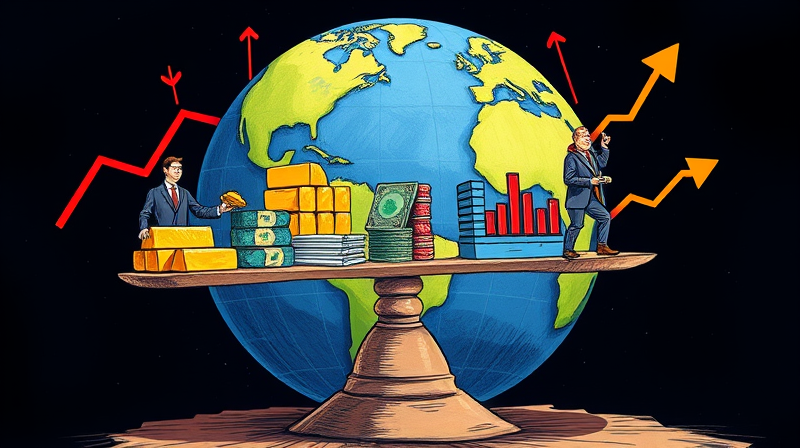In today’s dynamic financial landscape, the surge in sustainable investing is far from a fleeting fad. Investors across the globe are channeling capital into opportunities that not only promise returns, but also align with personal values and planetary resilience. This movement is reshaping markets, influencing corporate behavior, and offering a path to long-term value creation over quick gains without compromising on performance.
Global Market Momentum
Over the past decade, sustainable finance has transitioned from niche portfolios to mainstream acceptance. In 2024, the global sustainable finance market reached a monumental valuation of $754.43 billion. Projections now estimate it will swell to $2.58 trillion by 2030, underscoring a robust compound annual growth rate near 23%. This trajectory reflects not only rising investor appetite, but also the urgency of addressing environmental and social crises.
This data reveals the scale and speed at which sustainable investing is growing. With more than $3 trillion in sustainable fund assets and trillions issued in green bonds and loans, persistent investor demand worldwide is unmistakable. The momentum is further powered by individuals and institutions seeking transparent, ethical, and high-performing strategies.
Key Trends Shaping 2025
As we enter 2025, several forces are converging to elevate sustainable investing into a new era. The EU’s Corporate Sustainability Reporting Directive (CSRD) will be fully enforced, and the Sustainable Finance Disclosure Regulation (SFDR) will face intensified scrutiny. Meanwhile, emerging themes such as biodiversity finance and the ethics of AI are expanding the boundaries of what investors consider “sustainable.”
On the political front, potential rollbacks in the United States—in areas like Paris Agreement commitments and clean energy incentives—contrast sharply with Europe’s tightening regulations. This divergence is prompting asset managers to adopt more discreet stewardship approaches, known as "silent stewardship," rather than engaging in public joint initiatives.
Benefits of Sustainable Investing
Beyond the moral imperative, sustainable investing offers tangible advantages that strengthen portfolios and provide peace of mind. By weaving environmental, social, and governance factors into decisions, investors can:
- Mitigate long-term risks: Anticipate and sidestep climate and regulatory shocks.
- Capture growth opportunities: Support clean energy, circular economy, and inclusive innovation.
- Enhance returns: Historic performance has often matched or beaten traditional benchmarks.
- Foster positive impact: Drive progress on climate goals, human rights, and community development.
Challenges Facing the Market
Despite its promise, sustainable investing faces obstacles that require vigilance and sophistication. Notable roadblocks include:
- Greenwashing risks: Misleading claims can disguise true environmental performance.
- Data gaps and inconsistency: Varied reporting standards hinder apples-to-apples comparisons.
- Short-term pressures: Quarterly return demands may conflict with longer-term sustainability goals.
- Political uncertainty: Fluctuating policies, especially in major economies, can upend strategies.
Strategic Insights for Investors
Navigating the complexities of sustainable finance requires both diligence and a forward-looking mindset. Investors should prioritize transparency, selecting funds and issuers that adhere to recognized reporting frameworks and third-party verification. Emphasizing thematic opportunities—such as carbon-transition technologies or social equity ventures—can unlock differentiated returns while advancing global goals.
Building a resilient portfolio also means diversifying across geographies and asset classes. Emerging markets often offer untapped green innovation, though they may carry data quality challenges. In contrast, European assets under SFDR Articles 8 and 9, which make up roughly 60% of the continent’s sustainable fund market, provide a benchmark for high-disclosure, impact-oriented vehicles.
By maintaining a long-term horizon and disciplined research process, investors can position themselves to benefit from structural tailwinds: decarbonization mandates, shifting consumer preferences, and technological breakthroughs driven by AI and clean tech.
A Call to Action
Now is the time for individuals, financial advisors, and institutions to act decisively. Sustainable investing is not a peripheral strategy—it’s rapidly becoming the core of prudent financial stewardship. To move from intent to impact, stakeholders should:
- Engage with fund managers about their ESG methodologies and reporting.
- Integrate sustainability metrics into portfolio alignment assessments.
- Advocate for standardized disclosures and rigorous verification practices.
Looking Ahead
As 2025 unfolds, sustainable investing stands at a crossroads. With record capital flows, evolving regulation, and heightened scrutiny, the movement’s staying power is clear. Yet the journey demands continuous learning, critical analysis, and collaborative effort across sectors.
By embracing a mindset that values both profit and purpose, investors can help shape a world where economic success and societal well-being flourish together. The data, the trends, and the collective will are all converging to show one truth: sustainable investing is more than a trend—it’s the future of finance.
References
- https://www.morganstanley.com/insights/articles/sustainable-investing-interest-2025
- https://www.ussif.org/research/trends-reports/us-sustainable-investing-trends-2024-2025-executive-summary
- https://www.schroders.com/en-us/us/individual/insights/2025-sustainable-investment-outlook-top-8-trends-for-north-america-in-the-year-ahead/
- https://www.morningstar.com/sustainable-investing/6-sustainable-investing-trends-watch-2025
- https://clarity.ai/research-and-insights/ai/sustainable-investing-trends-to-watch-in-2025-key-insights-for-investors/
- https://www.globenewswire.com/news-release/2025/03/14/3042794/28124/en/Trends-Strategies-Shaping-the-2-58-Trillion-Sustainable-Finance-Industry-2025-2030-Presents-Revenue-Expectations-for-Equity-Bond-ETFs-Index-and-Alternatives-Hedged-Funds.html
- https://www.imd.org/blog/sustainability/sustainable-investing/
- https://www.lseg.com/en/insights/ftse-russell/expect-continued-evolution-in-the-sustainable-investment-market










